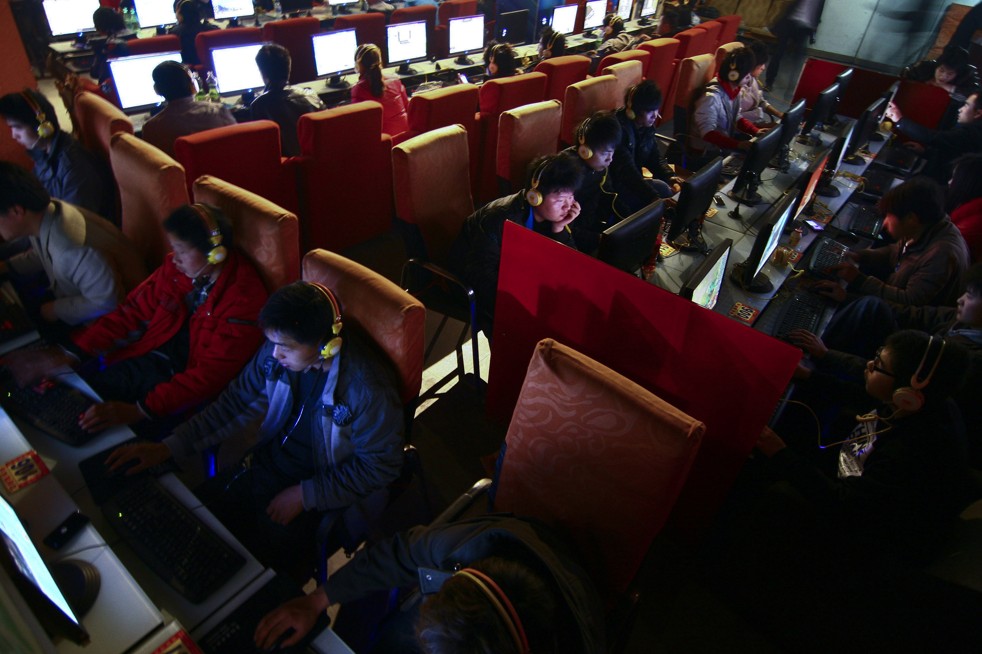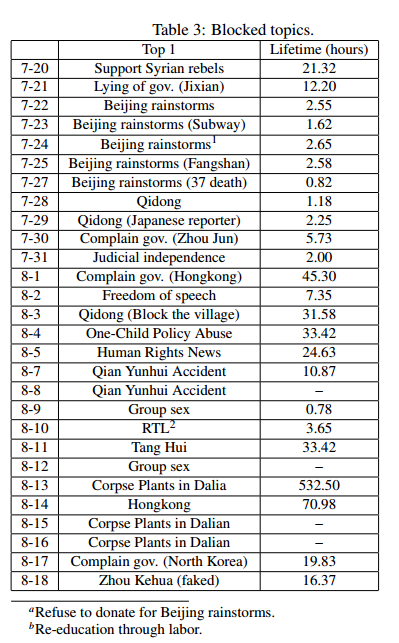 WAPO article on Rice U. study (richly detailed and seemingly very robust in data capture and analysis on how the Chinese gov deletes micro-blog posts).
WAPO article on Rice U. study (richly detailed and seemingly very robust in data capture and analysis on how the Chinese gov deletes micro-blog posts).
First point article makes is that China's flow of tweets is several times that of Twitter, so we're talking massive amount. It seems gov cuts about 12% of them.
Here are the envisioned procedures:
Explicit filtering: a banned keyword triggers an automated system, which stops the message from posting and warns the user he has violated policy. Implicit filtering: a banned keyword triggers an automated system, which delays the message until a censor can see it and tells the user there’s a server error in the meantime. Camouflaged posts: a banned keyword triggers an automated system, which keeps the message from displaying publicly but shows the user it has posted. Backwards repost search: either a human censor or an automated system discovers a problematic posts and deletes all versions of it (re-posts, etc.) across the network. Backwards keyword search: a censor notices a problematic keyword and deletes a number of its instances across the network. User monitoring: certain users who are censored frequently are flagged for closer scrutiny. Account closures: censors shut down problematic accounts entirely. The study counted 300 such closures of 3,500 accounts in a one-month period. Search filtering: a regularly updated list of terms cannot be searched. Public timeline filtering: sensitive topics are edited out of the general Weibo “fire hose.”
While we may celebrate the technical achievement (most posts killed in less than 10 minutes), we must remember the tremendous effort required and the larger reality that banned conversations occur all the time. All the government succeeds in doing is clamping down on public transmission.
The topics show how defensive the government is - from the geostrategic to the completely mundane:
 Okay, so Syria trends one day and then gov corruption comes next, but then look at the rainstorms cluster, because that's just people bitching about how poorly the gov responded to the frickin' rain! I mean, that is sad.
Okay, so Syria trends one day and then gov corruption comes next, but then look at the rainstorms cluster, because that's just people bitching about how poorly the gov responded to the frickin' rain! I mean, that is sad.
What's sad about this effort is that the gov does seek to respond on some level to these issues, so it listens. It just can't allow that listening or response process to be acknowledged - much less the initial bitching.
You may spot strength in that, or some BS about the "Chinese way of governance" and so forth, but all that fades away as the Chinese people modernize their society and exhibit more and more competence in running their own daily lives, businesses, and the larger society itself.
By engaging in all this clamping down of speech, all the government does is signal that it's not to be held responsible for its failures, and that determination blocks the naturally positive expansion of nationalism in the direction of societal self-improvement, meaning the gov is making itself less stable and thus more brittle over time by refusing to respect its own people and their righteous complaints.
In historical terms, this is spitting in the wind and wondering why there always seems to be saliva in one's eyes. The government is simply refusing to converse with a public that is becoming more self-deterministic - through economic success - with each passing day.
Again, there is no singular Chinese/Asian path in this regard. The same breakdown of the collective mindset that happened in the West happens in the East. Modernization/industrialization is simply that powerful.